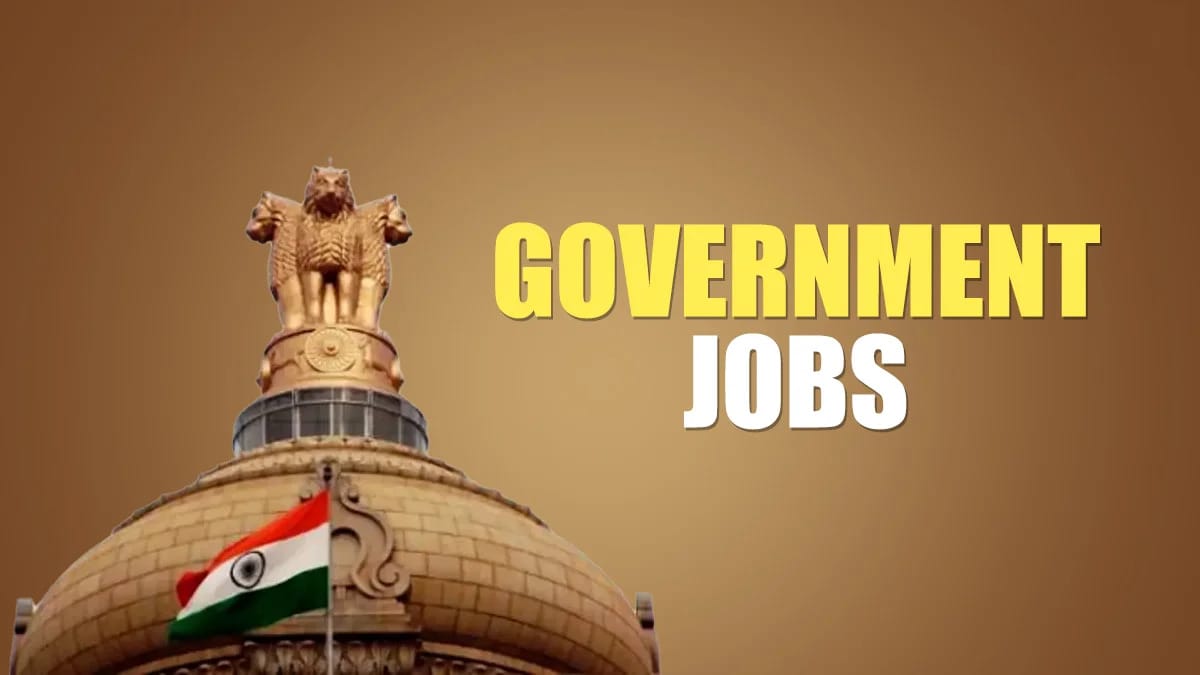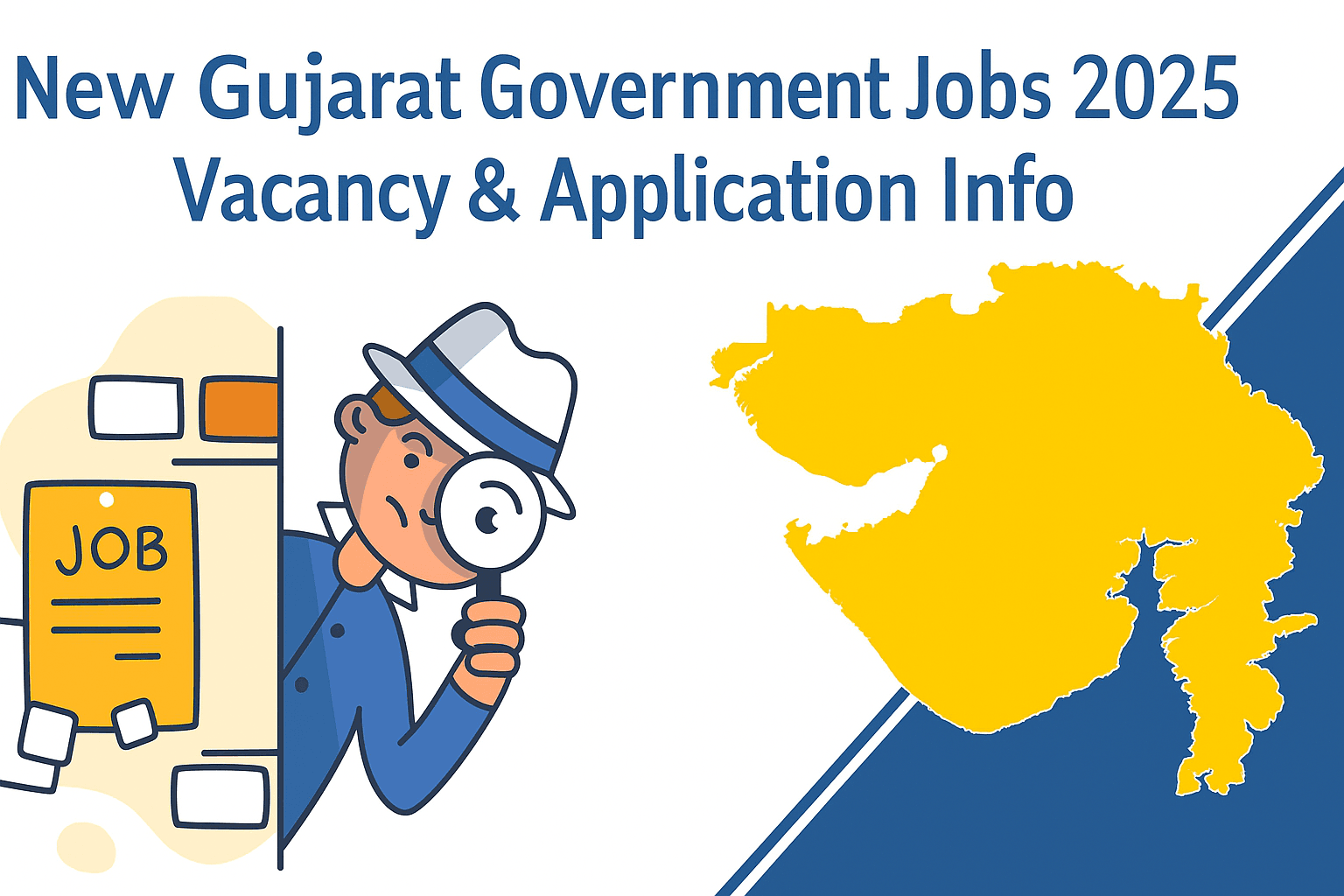Part time jobs in India, especially within the government sector, have seen growing interest due to their flexibility, stability, and prestige. Traditionally, government employment has attracted millions from across the country, offering long-term security and respect. By 2025, while full-time roles remain highly desirable, part time jobs in public institutions are gaining momentum, driven by technological advancements, political reforms, and changing socio-economic dynamics. These roles provide an ideal balance for individuals seeking professional engagement without the commitment of a full-time position.
This article examines the current status of government jobs in India in 2025, focusing on available opportunities, recruitment trends, changing skills requirements, challenges candidates face and the future of public employment in the country.
1. Why are government jobs popular in India.
Despite the growth of the private sector and the increase in start -up culture, government jobs in India continue to attract millions of applicants each year. The reasons are diverse:
1.1 job security
Unlike roles in the private sector, government jobs provide unmatched job security. Sorting is rare, and employees can usually expect to remain in their roles for retirement.
1.2 Fixed working hours and working life balance
Most government roles offer permanent task time, liberal magazines and a structured task environment, making them ideal for individuals looking for work and life balance.
1.3 Benefits and quotas
Public employees have different benefits, including pension schemes, health insurance, housing allowances, travel licenses and access to subsidized facilities.
1.4 Social status and reputation
In many parts of India, it is commanded to be state -employed continued respect and is often seen as a desirable struggle in marriage settings.
2.Large areas offering government jobs in 2025.
In 2025, many areas dominate the public employment scenario. Each provides unique opportunities for candidates with a diverse skill set.
2.1 Civil Service
Indian Administrative Service (IAS), Indian Police Service (IPS) and Indian Foreign Service (IFS) are still some of the highest sought -after services in India. Lakhs by applicants have been seen in the UPSC Civil Services exam.
2.2 Banking and Financial Services
Public banks such as SBI, PNB and Nabard recruit thousands of probation officers, officials and experts annually. Study such as IBPS and RBI class B are still competitive and prestigious.
2.3 Railway
Indian Railways, one of the largest employers globally, provides many types of roles from technology to administrative. The Railway Recruitment Board (RRB) exams are among the most applicable surveys in India.
2.4 Defense and paramilitary powers
The Indian Army, Navy, Air Force, CRPF, BSF and other defense services recruit young men and women in both officers and non-organizational roles through NDA, CDs and other entrance exams.
2.5 Teaching and Education
With the implementation of the National Education Policy (NEP) 2020, there is increasing demand from qualified teachers and educational persons in public schools, colleges and universities.
2.6 Public sector (PSU)
Psu such as Ongc, Bhel, NTPC and Gail Recruit Engineering and Management Graduates through surveys such as internal tests.
2.7 The judiciary and legal services
The judging service examines the opportunity to become a judge, state attorney or legal adviser in various abilities.
3.Technical change and digital rule.
3.1 E-management and digital India
The Digital India Initiative has revolutionized public service distribution, enhancing transparency and accessibility across the country. With increasing digitization, there is a growing demand for IT professionals, data analysts, and cybersecurity experts in public departments. These emerging roles have become target jobs for many aspiring candidates who aim to contribute to digital governance while building a stable career in the government sector.
3.2 AI and automation in governance
Many government departments now use AI for work as document processing, data analysis and distribution of civilian services. This trend has created new job roles related to AI development, maintenance and inspection.
3.3 recruitment and evaluation online
Gone are the days of paper -based exams. Most state recruitment procedures are now performed online, where biometric verification, CBT (data -based tests) and digital interviews become standard.
4.Competitive examination and selection process.
Government jobs in India are usually filled through strict competitive surveys, and test general knowledge, logical ability and subject -specific expertise.
4.1 UPSC (Union Public Service Commission)
UPSC recruits IAS, IPS, IFS and other Group A and Group B services one of the most prestigious and difficult exams in India.
4.2 SSC (Staff Selection Commission)
SSC CGL, CHSL and MTS exams fill different types of clergy and supportive roles in central Ministry of Government.
4.3 IBPS and SBI examination
These surveys are recruited for clergy and official roles in banks. The pattern includes prelims, power grids and interviews or group discussions.
4.4 State Public Service Commission
Each state has its own PSC (eg MPSC, TNPSC, UppsC) conducts exams for state administrative, police and education services.
5.Challenges of getting government jobs.
While government jobs provide many benefits, it is still a tough fight because of the great level of competition and systemic challenges.
5.1 Intensive Competition
For many exams, selection conditions are less than 1%. Millions of candidates compete for just a few hundred positions.
5.2 Long recruitment process
The recruitment cycle for many government jobs can increase from six months to two years, which can lead to stress and uncertainty.
5.3 Coaching addiction
Preparation of surveys such as UPSC or SSC often requires professional coaching, which may not be available or cheap to all candidates.
5.4 Mental and emotional stress
Frequent errors, social pressure and long -term studies have a customs on the candidate’s mental health.
6.Emerging trends in the authority’s employment.
As India’s economy and governance models develop, the nature of government jobs also goes through change.
6.1 Be aware of skill -based recruitment
Government departments quickly emphasize technical and soft skills. Certificates become important in digital tools, data analysis and communication.
6.2 Flexible and contractual jobs
While the permanent situation is still dominating, it is an increasing trend to hire on a contract basis, especially in IT, health services and counseling roles.
6.3 Remote and hybrid work model
Inspired by the private sector, some public agencies now allow partial remote work, especially for roles in policy research, IT and data analysis.
6.4 Diversity and inclusion
The government’s policy now promotes representation from groups, women and disabled people.
7.Preparation strategy for candidates.
In order to succeed in today’s competition environment, the candidates must use a concentrated and smart approach.
7.1 Understand the course
Each exam consists of a defined course. Staying from this helps to streamline efforts and help avoid overloading information.
7.2 Time Management
It is important to create a structured curriculum, change and balance fake tests.
7.3 Online resources and edtech
Many online platforms such as Unacademy, Byju and TestBook provide courses, mockery tests and updates of relevant issues for the government exam.
7.4 Colleague Group and Mentorship
Criminals can be part of learning groups or in search of mentorship from successful candidates can increase.
8.The role of government reforms and political changes.
The role of government reforms and political changes has been pivotal in shaping the employment landscape in India. To enhance transparency and efficiency in recruitment processes, the Government of India has introduced several key reforms.
These changes have not only streamlined hiring but also broadened the scope of target jobs for aspirants across various sectors. Additionally, the introduction of flexible work models has led to an increase in Part time jobs within government departments, offering more options for individuals seeking work-life balance or supplementary income.
8.1 National Recruitment Agency (NRA)
The NRA has been established to conduct the General Qualification Test (CET) for Group B and C jobs, which streamlines the initial step in SSC, RRB and IBPS.
8.2 Reservation Reform
Increased focus on EWS reservation, revised OBC criteria and regional representation change the demographics of employment in the public sector.
8.3 Skill India Mission
The government’s pressure on commercial and digital skills development creates new job opportunities and increases employment.
9.Future approach to government jobs in India.
As India wants to become an economy of $ 5 trillion, the role of a government force is important. What is the future here:
9.1 Public Administration Powered by Technology
Rolls related to cyber security, blockchain and AI will dominate the new wave of keeping the government work.
9.2 More transparent and timely recruitment
With digitization, the recruitment cycles are expected to be faster and more transparent, which reduces corruption and bias.
9.3 Focus on youth and innovation
Initiatives such as start-up India and Atal Innovation Mission indicate that the government wants to bring entrepreneurship mentality into governance.
9.4 Environment and climate focus
As India’s climate policy matures, new roles in stability, green energy and environmental management will appear in the public sector.
Conclusion
By 2025, government jobs in India have a special place in millions of ambitions. Although competition is intense and the preparation is difficult, prices are important-opportunities to contribute to security security, social respect and nation-building.
However, the nature of these jobs develops. From the dominance of digital skills to the adoption of new recruitment models, candidates should be compatible with the changing landscape. With the right strategy, flexibility and preparation, it is still a realistic and full goal for the youth in India.




